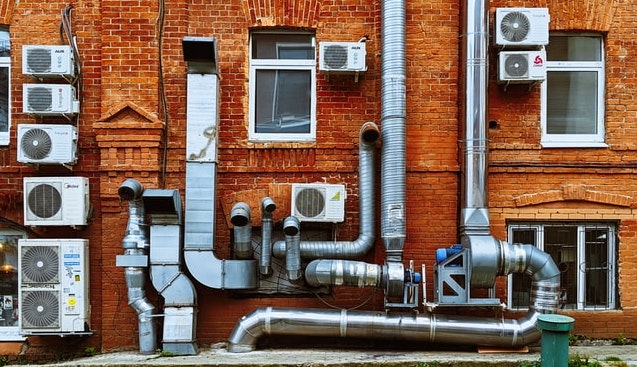
This month we are focusing on what is being done to save our environment by our local governments – the City of Charlottesville and by Albemarle County – and by a collaboration between these two entities and UVA. It includes some details about what each entity is doing to improve our environment. We hope that you will find it informative and useful!
NOTE: Under Charlottesville Climate Incentives section, there are money saving benefits – make sure you check them out!
Resilient Together (City of Charlottesville, Albemarle County, and UVA)
Though the City of Charlottesville, Albemarle County, and the University of Virginia are separate jurisdictional entities, we are one community and we all face the same impacts from the changing climate. The Resilient Together project, a collaborative Climate Adaptation and Resilience Planning initiative, was born out of Climate Action Together, a collaboration of the three entities begun in 2019. Resilient Together is designed to ensure our community is prepared to face the challenges of the future. The ultimate goal of the project is to support a strong, safe, and healthy future for all.
Learn more here: Resilient Together

City of Charlottesville Sustainability Initiatives
The City of Charlottesville is committed to implementing equitable practices and policies across all of its activities.
City Council Vision 2025: A Green City
Charlottesville citizens live in a community with a vibrant urban forest, tree-lined streets, and lush green neighborhoods. We have an extensive natural trail system, along with healthy rivers and streams. We have clean air and water, we emphasize recycling and reuse, and we minimize stormwater runoff. Our homes and buildings are sustainably designed and energy efficient.
Climate Action Plan
As part of its commitment to the Global Covenant of Mayors for Climate and Energy, the City of Charlottesville developed a Climate Action Plan to guide the city towards its emissions reductions goals which was adopted as an amendment to the 2021 Comprehensive Plan on January 17, 2023.
Climate Action Work Plan
As part of implementing Charlottesville’s Community Climate Action Plan, we are publishing our 2023 Climate Action Work Plan. This is a summary list of projects the City is undertaking this year to work towards our climate goals. It serves as the foundation for our annual reporting of progress towards meeting those goals. We also invited partners across the community we know are working on climate to share their plans and programs too. Community-based actions are in the second table below. We know this is a snapshot of the climate work that’s happening in Charlottesville, so if there’s something we missed or a new initiative we should know about, please let us know! You can see the work plan details here.
Greenhouse Gas (GHG) Emissions Reduction Goal
The City of Charlottesville has adopted a GHG emissions reduction goal (including emissions resulting from residential, commercial, industrial, and governmental activities such as powering our buildings, transportation, waste, and water/wastewater), to include reducing GHG emissions to 45% below 2011 levels by 2030 and achieving carbon neutrality by 2050.
Charlottesville Emissions Reports
In accordance with the City’s commitment to the Global Covenant of Mayors for Climate and Energy and to track progress towards our community climate goals, Charlottesville conducts an annual Greenhouse Gas (GHG) inventory. Emissions inventories measure and track community-wide greenhouse gas emissions associated with activities within the City of Charlottesville’s jurisdictional boundary. Inventories are compiled according to established reporting protocol standards. GHG Emission Inventories are identified by the calendar year in which activity occurred.

Climate Incentives (available through the Inflation Reduction Act)
The City of Cville has been getting a lot of questions about how community members can access the benefits, rebates, and tax credits that are available through the Inflation Reduction Act (IRA). Federal guidance is still evolving, but we have compiled this list of trusted resources to help you get started. The list will be regularly updated to reflect updates and improved guidance.
Homes & Buildings – Federal Tools & Incentives
These are programs and tools for improving your home energy efficiency available through federal programs:
IRA Rebate and Tax Credits – See the full list of IRA incentive programs you may be eligible for now and in the future.
Offers and Rebates for ENERGY STAR Products – See the EPA-certified ENERGY STAR products and associated financial incentives from the IRA and Dominion Energy.
Rewiring America Energy Savings Calculator – This tool helps you understand which IRA programs you are eligible for based on household size and income.
Department of Energy Programs for Renters – Information about programs specifically for tenants.
Homes & Buildings – Other Programs & Incentives
These are programs available through our local utility, the City of Charlottesville, and other partners:
Virginia Energy Sense – Virginia’s energy education resource.
Dominion Energy Energy Savings Programs – See programs available through our regional electric utility provider.
City of Charlottesville Green Incentives and Rebates – the City offers several incentives and resources to support and promote green building practices, including energy efficiency, energy conservation, renewable energy generation, and water conservation.
Local Energy Alliance Program (LEAP) Programs – Qualified community members are eligible for free home weatherization through a trusted City partner.

Electric Vehicles
These resources are related to rebates and incentives for electric vehicles or charging infrastructure. Many vehicle rebates are now available at point of sale!
Department of Energy – New Vehicles – This tool lets you search by vehicle make & model to determine tax credit availability for new electric vehicles.
Department of Energy – Used Vehicles – This tool lets you search by vehicle make & model to determine tax credit availability for used electric vehicles.
Rewiring America – All the details in one place about federal EV tax incentives.
Dominion Energy – Information about Dominion Energy’s Residential Charger Program.
Charlottesville EV Infrastructure Grant – Information about Charlottesville’s EV Infrastructure Grant Program for publicly accessible charging stations.
Albemarle County’s Environmental Stewardship Hub
https://www.albemarle.org/community/environmental-stewardship-in-albemarle-county
Climate Action
Albemarle County has committed to being a leader in spearheading local action to address climate change. To limit the worst effects of climate change, in 2019 the Board of Supervisors committed to reduce community-wide greenhouse gas emissions by 45% from 2008 levels by 2030 and to achieve zero net emissions by 2050. Albemarle County’s target is to reduce greenhouse gas emissions in the community by 45% from 2008 levels by 2030 and to achieve zero net emissions by 2050.
Our climate protection program seeks to achieve these targets in ways that:
- Benefit the health of all residents;
- Protect the local natural environment;
- Stimulate the creation of green jobs to support a thriving local economy;
- Promote education on climate action for youth and adults; and
- Contribute to a more equitable community, with the benefits easily accessible and affordable for every resident regardless of socio-economic status.
The purpose of our Climate Action Plan is to reduce the community’s contributions to global climate change while advancing the County’s vision of a thriving, vibrant community for every resident. The plan addresses transportation, land use, building energy use, renewable energy, sustainable materials management, landscape, natural resources, and agriculture. Learn more about our Climate Action Plan
Focus on Clean Water
What happens in our watersheds (the land area that drains into a water body) influences water quality not only within Albemarle County, but also downstream of our borders. Over 90% of the county is in the watersheds of the Rivanna and Hardware Rivers, which flow into the James River, one of the major tributaries of the Chesapeake Bay. Albemarle County local government implements a number of programs – both mandated and voluntary – to protect local water resources and waters that are downstream, including the James River and Chesapeake Bay. Many other programs and initiatives, such as those that focus on Biodiversity and Climate Action, also indirectly support clean water.

Waste Reduction
Recycling: There are two drop-off recycling centers available to county residents:
- McIntire Recycling Center
- Ivy Material Utilization Center
Composting: The Rivanna Solid Waste Authority has a food waste composting program at McIntire Recycling Center and at Ivy Material Utilization Center. Compostable food waste from households is accepted in compostable bags; complimentary bags are offered to users of this program at the composting kiosks at either recycling center. For more details on the food waste composting program, please visit RSWA’s Composting 101
Biodiversity
Local government plays an important role in protecting natural resources and biodiversity, and several of the County’s projects and programs have a direct influence on biodiversity conservation. Many other programs and initiatives, such as those that focus on Climate Action and Clean Water, also indirectly support biodiversity. The Biodiversity Action Plan (BAP), developed in 2018, provides specific goals and recommendations to help protect biodiversity in Albemarle County. Implementation of the BAP has been included as one of the goals of the County’s Comprehensive Plan (amended 2019) and is currently underway.
Learn more here: Biodiversity Action Plan
Get Involved!
Stewardship Focused Meetings and Events
Another way you can get involved in your community is to participate in Albemarle County public meetings and provide input. Upcoming stewardship-related meetings are listed at their website.
As always, we appreciate your readership and please let us know if there are any topics/issues that you would like to see covered! Ellie Syverud, Editor
